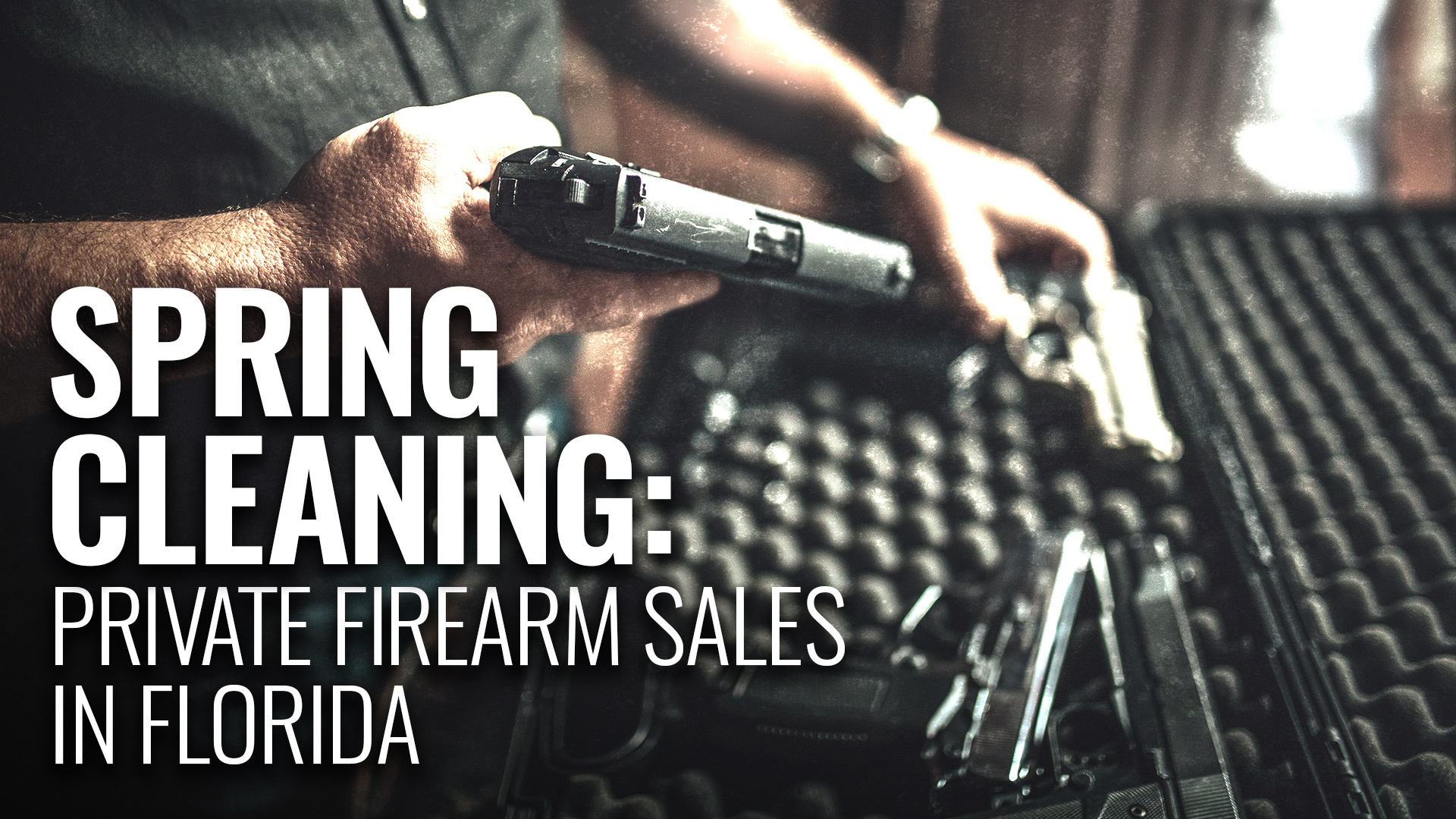
Spring is upon us, and it’s time to get a little spring cleaning done around the house. What if while you are tidying up your gun closet or safe you decide you want to sell a couple of your firearms to make room for some new ones? If you decide to conduct a private sale with an individual, it is important you know what can and cannot be done, and how to stay on the right side of the law.
PRIVATE SALEs
While cleaning out your gun closet you decide you want to sell your Glock 17 to your next-door neighbor so you can make room for a new Smith & Wesson M&P M2.0. Florida and federal law do not require the sale of the firearm to be registered, nor do they require the seller to perform a background check on the buyer.
The only requirements are 1) the buyer must be 21 years or older; and 2) the buyer must not be a prohibited person. What if you did not know your neighbor was convicted of a felony many years ago? Could you get in trouble for selling him your Glock? No, only your neighbor would be committing a felony. However, if you knew that he was a prohibited person and you decided to sell the gun to him anyway, then you both are committing felonies. The law does not require you to ask the buyer if he or she is a prohibited person, but if you know you cannot complete the sale.
OUT-OF-STATE RESIDENTs
Furthermore, you and your neighbor are not required to use a Federal Firearms Licensed dealer (“FFL”) to complete your transaction. Under Florida and federal law, it is perfectly legal to directly sell a firearm to another individual who resides in the State of Florida without having to go through an FFL. This applies to both handguns and long guns.
The only time the law requires you to use an FFL for your private sale is when you are selling a firearm to another individual who does not reside in Florida. In that situation you must have an FFL in Florida transfer the gun to an FFL in the state in which the buyer lives who can complete the transaction. If you forgo this step because the buyer is vacationing in Florida and wants the firearm for his trip back home, you both are committing a 3rd degree felony under federal law, which carries a penalty up to five years in prison.
DOCUMENTATION
Although selling a firearm to another Florida resident does not require the transaction to be recorded, we suggest that you have a bill of sale executed anytime you sell a firearm. That way if the firearm you sold is later used in a crime, you will have a paper trail to show law enforcement, documenting that you are not the owner of the gun.
If you have any questions regarding selling a firearm in a private sale, please call U.S. LawShield and ask to speak to your Independent Program Attorney.
The post Spring Cleaning: Private Firearm Sales in Florida appeared first on U.S. & Texas LawShield.
